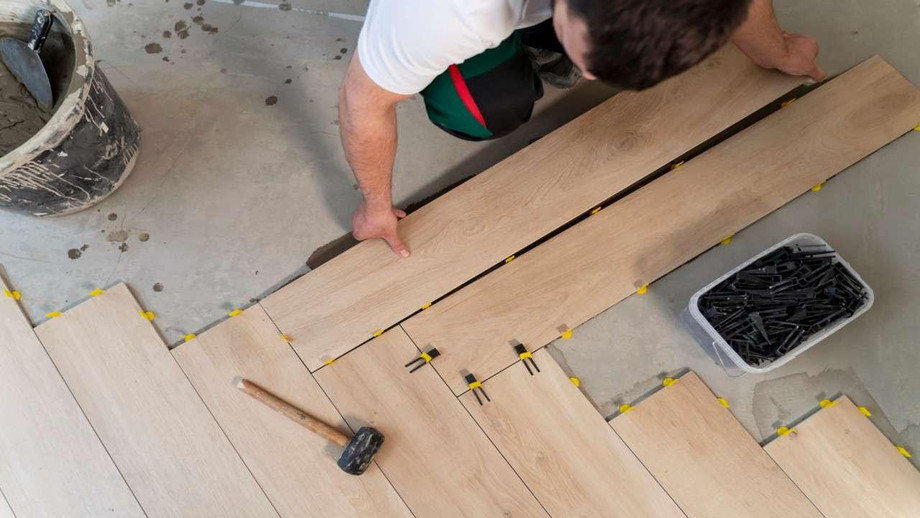The flooring of a commercial building plays a crucial role in setting the tone for the space, impacting aesthetics, functionality, and maintenance. With a plethora of options available, selecting the best flooring for a commercial environment requires careful consideration. In this comprehensive guide, explore our guide for insights into types of commercial flooring, their advantages, and key considerations, guided by the expertise of seasoned commercial flooring specialists.
1. Carpet Tiles: A Perfect Blend of Comfort and Durability
Carpet tiles have gained popularity in commercial settings due to their versatility and ease of installation. They provide a comfortable and quiet environment, making them an excellent choice for office spaces, conference rooms, and hospitality areas.
One of the significant advantages of carpet tiles is their ability to dampen sound, creating a quieter atmosphere. This is particularly beneficial in open-office layouts where reducing noise levels is essential for productivity.
Additionally, carpet tiles come in a wide range of colors and patterns, allowing for creative and customizable designs that can enhance the overall aesthetic of the commercial space. They are also relatively easy to clean and replace, making maintenance hassle-free.
2. Luxury Vinyl Plank (LVP): Affordable Elegance with High Durability
Luxury Vinyl Plank (LVP) has become a popular choice for commercial spaces seeking the aesthetic appeal of hardwood or stone without the associated costs. LVP offers an affordable yet stylish flooring solution with high durability.
One of the key advantages of LVP is its moisture resistance, making it suitable for areas prone to spills or high humidity. It is also highly durable, and able to withstand heavy foot traffic and the rigors of a commercial environment.
LVP comes in a variety of styles and finishes, providing the flexibility to achieve the desired look for different areas within the commercial building. Its easy installation and low maintenance requirements make it a practical choice for businesses.
3. Porcelain Tile: Timeless Elegance with Exceptional Durability
Porcelain tile is a classic and elegant choice for commercial spaces that require durability and a refined appearance. It is suitable for areas with high foot traffic, such as lobbies, restrooms, and corridors.
One of the standout features of porcelain tile is its exceptional durability and resistance to scratches and stains. This makes it an ideal option for areas where maintaining a pristine appearance is crucial.
With a wide range of colors, patterns, and sizes available, porcelain tile provides design versatility, allowing for creative and customized flooring solutions. It is also easy to clean and hypoallergenic, contributing to a healthier indoor environment.
4. Concrete Flooring: Industrial Chic with Minimal Maintenance
Concrete flooring has transcended its industrial roots to become a popular choice for modern commercial spaces. Its sleek and minimalist aesthetic, coupled with low maintenance requirements, makes it a compelling option.
Polished concrete floors are not only visually appealing but also highly durable and resistant to stains. This makes them suitable for retail spaces, showrooms, and areas with high foot traffic.
The versatility of concrete allows for various finishing options, including staining and scoring, to achieve a customized look. Additionally, concrete's thermal mass properties contribute to energy efficiency, helping to regulate indoor temperatures.
5. Rubber Flooring: Comfortable and Resilient
Rubber flooring is known for its resilience and comfort, making it an excellent choice for commercial spaces that prioritize employee well-being. It is commonly used in gyms, healthcare facilities, and educational institutions.
One of the primary benefits of rubber flooring is its shock-absorbing properties, reducing fatigue and providing comfort underfoot. This makes it ideal for spaces where employees are on their feet for extended periods.
Rubber flooring is also slip-resistant and easy to maintain. It comes in various colors and patterns, allowing for creative designs that can contribute to a vibrant and dynamic atmosphere.
6. Linoleum: Sustainable and Versatile
Linoleum flooring is making a comeback as businesses prioritize sustainability. Made from natural materials such as linseed oil and cork, linoleum is an eco-friendly choice for commercial spaces.
One of the standout features of linoleum is its sustainability. It is biodegradable, recyclable, and produced using renewable resources, making it an environmentally conscious flooring option.
Linoleum is also versatile, and
available in a wide range of colors and patterns. It is durable and resistant to stains, making it suitable for high-traffic areas. Additionally, its anti-static properties contribute to a healthier indoor environment.
Factors to Consider When Choosing Commercial Flooring:
Now that we've explored different types of commercial flooring, it's essential to consider various factors before making a decision. These factors include:
- Foot Traffic: Assess the level of foot traffic in different areas of the commercial building to determine the durability requirements of the flooring.
- Budget: Consider the budget constraints and explore flooring options that offer the best value for money without compromising on quality.
- Aesthetics: Choose flooring that complements the overall design and aesthetic of the commercial space, creating a cohesive and inviting environment.
- Maintenance: Evaluate the maintenance requirements of each flooring type to ensure it aligns with the available resources for cleaning and upkeep.
- Durability: Prioritize durable flooring options in high-traffic areas to ensure longevity and cost-effectiveness.
- Sustainability: If sustainability is a priority, explore eco-friendly flooring options such as linoleum or recycled materials.
- Installation: Consider the ease of installation and any downtime that may be associated with installing the chosen flooring.
In conclusion, selecting the best flooring for a commercial building involves a thoughtful analysis of the unique requirements and considerations of the space. Whether prioritizing comfort, durability, or sustainability, the right flooring choice can significantly impact the overall functionality and aesthetics of the commercial environment. Evaluate the specific needs of each area within the building, weigh the pros and cons of different flooring options, and make an informed decision that aligns with the goals and vision of the business.

